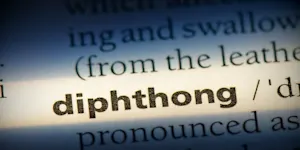What Makes This Word Tick
Clemency is like the softer touch of justice—a concept that allows for mercy and leniency where strict punishment could be applied. It's most commonly used in legal contexts, where someone might receive a pardon, reduced sentence, or amnesty. It's a word that reminds us of the human capacity for forgiveness and understanding, especially when circumstances call for compassion over rigidity.
If Clemency Were a Person…
If clemency were a person, it might resemble a wise grandfather with a twinkle in his eye, always ready to lend a sympathetic ear or a warm hug. This person would be the one who tells stories of second chances and encourages those around them to see the good in even the most dire situations.
How This Word Has Changed Over Time
The concept of clemency has been around for centuries, rooted deeply in both religious and secular contexts. Initially tied closely to the ancient Roman justice system as an act of mercy by emperors, over time it evolved into a formalized legal practice in many countries. Its application might have shifted slightly, but its essence remains—a compassionate intervention in the face of severity.
Old Sayings and Proverbs That Use Clemency
While there are no direct proverbs with the word "clemency," the sentiment is echoed in sayings like "to err is human, to forgive divine." Such expressions capture the essence of showing mercy and understanding beyond human frailties.
Surprising Facts About Clemency
Clemency isn't just about legal matters; it can also refer to nature, describing a mild day or gentle weather. Interestingly, the clemency of the weather and justice are linked through their shared quality of being gentle and forgiving rather than harsh and extreme.
Out and About With This Word
You'll often encounter "clemency" in discussions about presidential pardons, statewide clemency boards, or even during debates on criminal justice reform. Its presence sparks conversations about fairness, humanity, and the underlying principles of justice systems worldwide.
Pop Culture Moments Where Clemency Was Used
Pop culture tends to showcase clemency in courtroom dramas or historical films where a pivotal plot twist involves a character being granted mercy. Think of those tense film moments when a character awaiting a grim fate is unexpectedly saved by a benevolent authority figure.
The Word in Literature
In literature, clemency might appear in novels exploring themes of morality, justice, and redemption. Authors like Victor Hugo or Dostoevsky might delight in using "clemency" to highlight a character's inner struggle with the dualities of justice and mercy.
Moments in History with Clemency
Clemency was keenly felt during the Nuremberg Trials post-World War II, where some war criminals were given leniency for cooperating with authorities. Also, many presidents have become known for their pardons, with President Gerald Ford's pardon of Richard Nixon being a prime historical example of clemency's power and controversy.
This Word Around the World
Clemency takes on fascinating dimensions in different cultures. In some countries, like India, the president has the constitutional authority to grant clemency. In Japan, it's often seen as a significant part of the judicial process, reflecting the culture's emphasis on reconciliation and harmony.
Where Does It Come From?
The word "clemency" has its roots in the Latin "clementia," meaning gentleness or mildness. This origin highlights the core essence of the word—an act or attitude characterized by leniency and compassion.
How People Misuse This Word
Sometimes people use "clemency" loosely when they mean "pardon" or "amnesty," yet these terms have their distinct nuances. Clemency can include pardons, but it specifically refers to the broader concept of mercy within legal contexts.
Words It’s Often Confused With
Pardon: Often means complete absolution from a crime, whereas clemency might just reduce punishment.
Amnesty: Similar to pardon but applies to a group of people, usually for political offenses.
Leniency: A broader term for lessening punishment that isn't confined to the legal system.
Additional Synonyms and Antonyms
Some synonyms for clemency include leniency, mercy, compassion, and forgiveness. Antonyms would be severity, harshness, and mercilessness. These words represent the softer and harsher sides of justice and human behavior.
Want to Try It Out in a Sentence?
"The judge's clemency was unexpected, allowing the young offender a chance at rehabilitation rather than a long prison sentence."
















